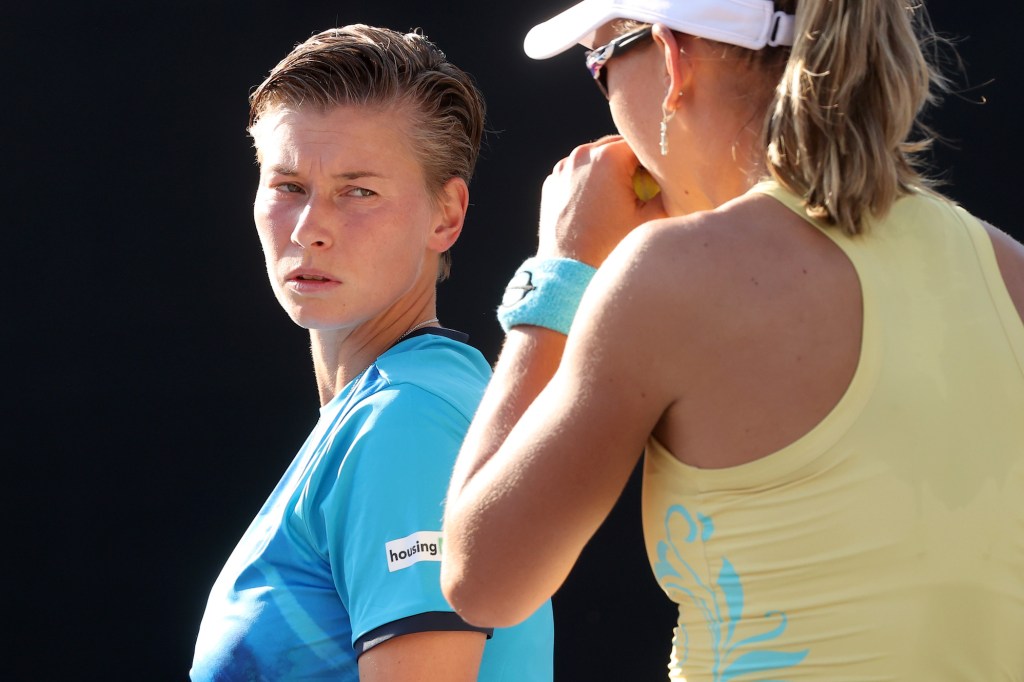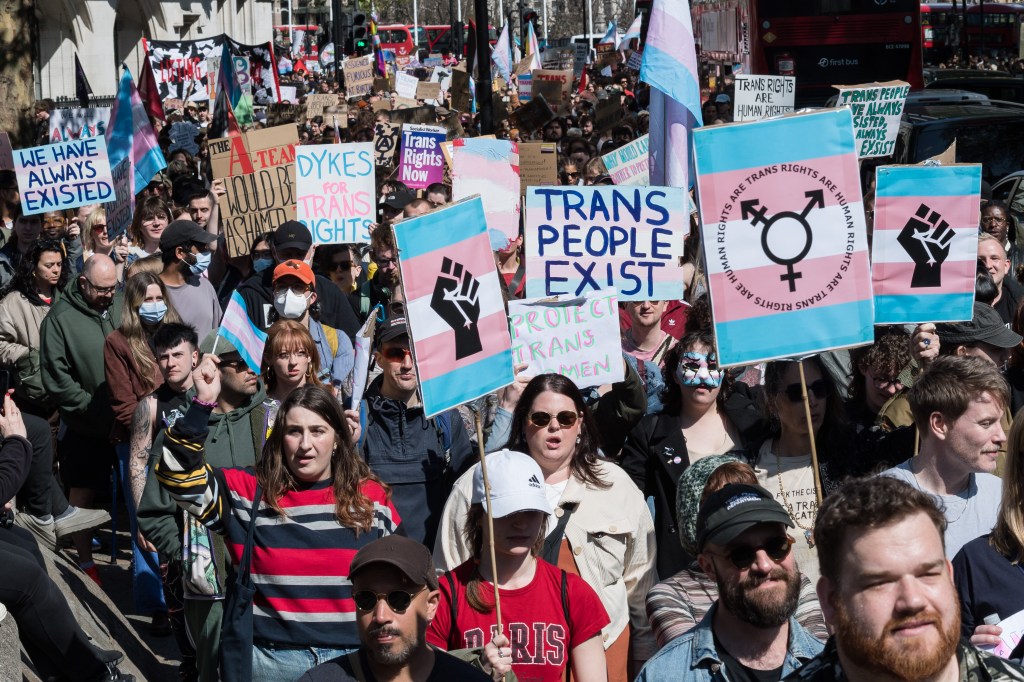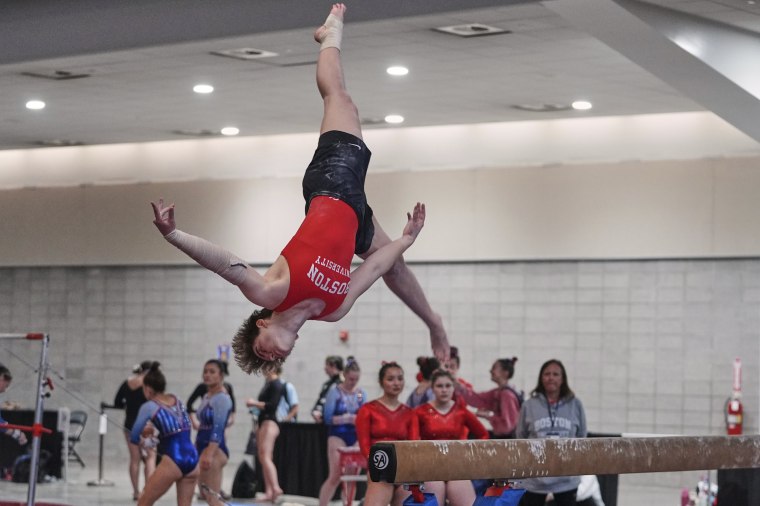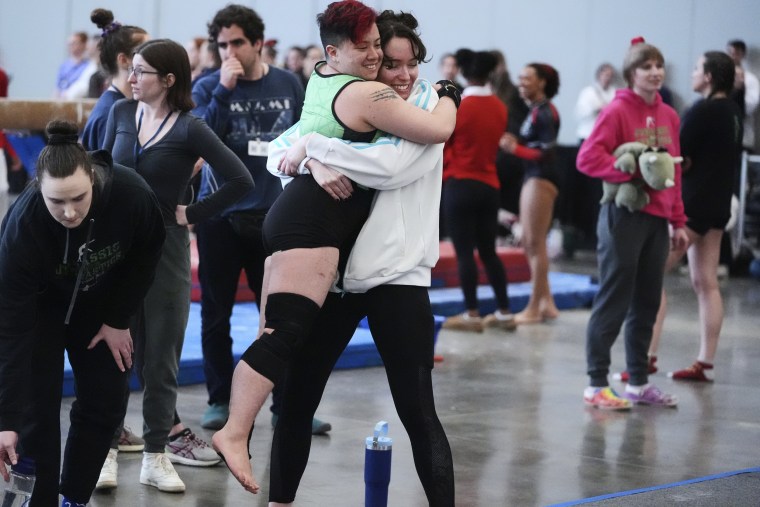The gay tennis players smashing down barriers at the French Open 2025
The second Grand Slam event on the 2025 tennis calendar, the French Open, or Roland Garros, got underway in Paris on Sunday (25 May), and there are several gay tennis players offering some vital rainbow LGBTQ+ representation.
Since the days of trailblazing gay Grand Slam champions Billie Jean King and Martina Navratilova, women’s tennis has long provided some of the biggest LGBTQ+ names in sport – and there are currently several players Women’s Tennis Association (WTA) tour carrying that torch for a new generation.
The men’s Association of Tennis Professionals (ATP) tour continues to lag way behind the women’s game: Until last year, there were no out gay male players on tour, nor had there been since the Open era began in 1968.
That all changed in December 2024, Brazil’s João Lucas Reis da Silva, 24, became the first active male pro tennis player to come out publicly when he shared a sweet social media post to mark his partner’s birthday.

Prior to that, American former world number 57 Brian Vahaly had come out publicly as gay in 2017, a decade after retiring from the sport, and shed light on some of the barriers faced by gay male players.
“I heard homophobic comments all the time in the locker room – to my face, behind my back. That was just a part of the culture”, he told The Telegraph in 2018.

While João Lucas Reis da Silva is not currently ranked high enough to qualify for direct entry to Grand Slam tournaments, here are the out gay female tennis players to keep an eye out for in the Australian Open 2025 main draw.
Out gay tennis players playing at the Australian Open 2025
Daria Kasatkina

Russian native Daria Kasatkina became the highest-profile out gay tennis star on the WTA tour when she came out publicly in July 2022 – a move that eventually led her to switch allegiance to Australia in March 2025.
“For me, being openly gay, if I want to be myself, I have to make this step, and I did it,” Kasatkina said of her decision to represent Australia in competition.
The tennis player, who has a career-high ranking of number eight and reached the quarter-finals at Wimbledon in 2018, confirmed her relationship with Olympic figure skater Natalia Zabiiako via Instagram when she originally came out.
In the years since, Kasatkina has been an outspoken critic of Russia’s invasion of Ukraine and anti-gay political culture – even if it’s come at great personal cost.
“It’s unsafe for me now, with the regime we have. As a gay person who opposes the war, it’s not possible to go back,” she told The Times in July 2023. “But I don’t regret it even 1 per cent.”
She went on: “When the war started and everything turned to hell, I felt very overwhelmed and I just decided, “F*** it all”. I couldn’t hide any more. I wanted to say my position on the war and my [sexuality], which was tough, coming from a country where being gay is not accepted, but it felt like I had a backpack of stones on my shoulders and I just had to throw it off.
“Afterwards, I faced a few consequences, but the only thing that worried me was my parents, and they were fine. They are proud of me.”
Greet Minnen

Greet Minnen, who has a career-high ranking of 59, was in a high-profile relationship with fellow Belgian tennis star Alison Van Uytvanck until late 2021.
In 2019, Minnen and Van Uytvanck became the first same-sex couple in history to play doubles together at Wimbledon, reaching the second round.
Minnen’s public coming out took place at the tournament the year before, when Van Uytvanck rushed over to kiss her in the stands after defeating then-defending champion Garbiñe Muguruza in the second round.
Minnen and Van Uytvanck announced their engagement in December 2020 before going their separate ways the following year.
Demi Schuurs

Dutch doubles specialist Demi Schuurs previously reached the semi-finals of the Australian Open as well as the quarter-finals of Wimbledon and the US Open in doubles.
Schuurs came out as gay as a teenager and has stated her desire to be a role model for young LGBTQ+ people.
She told the WTA in 2020: “I think that’s really nice to be able to support younger fans who may be going through the same things I did. I remember the feelings I had when I came out, so I want to help younger people understand that they should be how they want to be, and show what they want to show.
“You only live once, so you have to be happy and don’t need to stress about being gay or not.
Other gay tennis players on the WTA tour
Nadia Podoroska

Argentinian tennis player Nadia Podoroska came out publicly in October 2022.
In an Instagram post, the former French Open semi-finalist – who has been ranked as high as number 36 in the world – confirmed her relationship with fellow Argentinian tennis player Guillermina Naya.
Shared on Naya’s 26th birthday, Podoroska’s post consisted of images of the couple hugging and kissing, with the caption: “Today I celebrate you from afar, but I feel you by my side every day of my life.”
Podoroska was congratulated on her announcement by former women’s world number one and LGBTQ+ trailblazer Billie Jean King, who tweeted: “Living authentically takes such courage, but is always worth it.”
Guillermina Naya
Argentina’s Guillermina Naya achieved a career-high ranking of 533 in 2020 and has won two titles on the ITF Cicuit – the tier of tournaments below the WTA tour.
Naya’s relationship with Argentinian player Nadia Podoroska was confirmed by Podoroska in October 2022.
Emina Bektas
American Emina Bektas is currently in a relationship with British player Tara Moore.
Bektas only broke into the world’s top 100 for the first time in 2023, becoming the fourth oldest top 100 debutant in WTA history.
Tara Moore
Out gay British player Tara Moore is a former world 145 player in singles and former top 100 player in doubles.
Moore is currently in a relationship with American player and former doubles partner Emina Bektas. She was previously engaged to Swiss player Conny Perrin.
Conny Perrin

Swiss player Conny Perrin has been ranked as high as 134 in the world and was previously engaged to British player Tara Moore.
In 2017, Perrin told the New York Times that dating a fellow tennis player had benefits, saying: “It’s different when you date someone else who doesn’t really understand tennis and all the traveling and stuff like that.
“We understand that of course we need to travel sometimes apart.”



